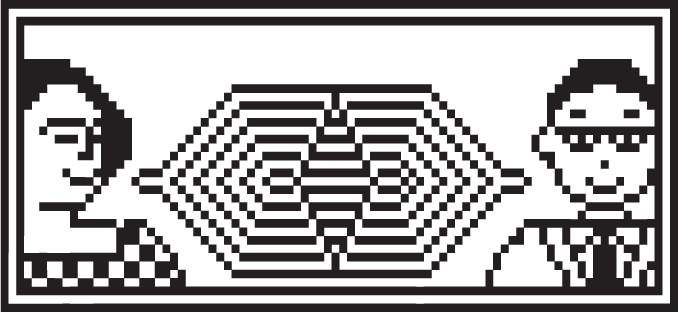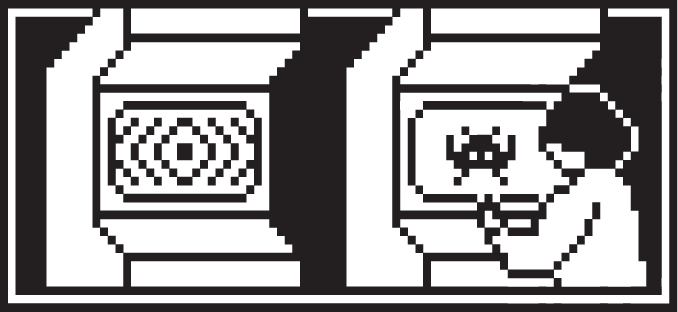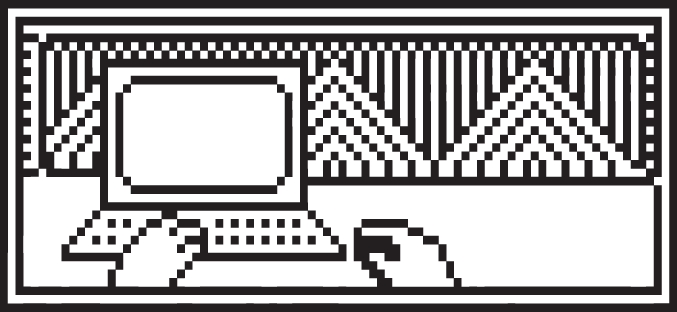Processing Community Day @ São Paulo
.png)
EN / PT
Processing Community Day 2019
Worldwide
Processing is a free and open-source software platform for learning how to code within the context of the visual arts, created by Casey Reas and Ben Fry. It is complemented by a web version, called p5.js, created by Lauren McCarthy. To date, Processing and p5.js are used by a worldwide community of artists, coders, educators, students.
A focus of this project is to make learning how to program and make creative work with code accessible to diverse communities, especially those who might not otherwise have access to these tools and resources. The first Processing Community Day (PCD), organized by Taeyoon Choi and the Processing Foundation in 2017 was one of our efforts to improve diversity within the art and programming community. Taking place at the MIT Media Lab, PCD 2017 drew community members from all over the east coast to get together in person to meet, share what they’re working on, to learn, and collaborate.
For PCD 2019, we would like to broaden the reach and impact of this community by organizing with hundreds of Processing communities around the world. The Processing Foundation will be organizing a Processing Community Day in Los Angeles as well as inviting node organizers from all over the world to join us in organizing events in multiple locations, between January 15th and February 15th, 2019.
PCD @ São Paulo: January 19th, 2019

Image by Monica Rizzolli (homage to Susan Kare)
When: January 19th, 2019, 10 AM - 06 PM
Where: ThoughtWorks Brazil
Avenida Paulista, 2300 - Edifício São Luis Gonzaga- Conjunto 41
Bela Vista, São Paulo - SP, 01310-300, Brazil
The group of people organizing PCD @ São Paulo grew from personal links and educational activities of people involved with Noite de Processing, a monthly arts and programming meetup at Garoa Hacker Clube, the first Brazilian hackerspace, in São Paulo.
REGISTRATIONS
Registrations are now closed.
Official Schedule
10:00 - 10:30 - Registration
10:30 - 11:00 - Welcome and Opening
11:00 - 12h:30 / 13h30 - 15:00 / 15:30 - 16:15 - To Play
João Antônio Ferreira
11:00 - 11:45 - Web Python and Processing on teaching programming
[Para Learn] - Claudio Esperança
11:45 - 12:30 - The Archeology of Computer Design
[Para Make] - Rodrigo Rezende de Souza
12:30 - 13:30 - Lunch break
13:30 - 14:15 - Cellular Automata
[Para Fazer] - Tatyana Zabanova
14:15 - 15:00 - Programming as a tool for graphic design
[Para Fazer] - André Burnier
15:00 - 15:30 - Coffee break
15:30 - 16:15 - To Learn
[To Learn] - Marco Macarena
16:15 - 17:15 - Lightning talks
Already confirmed:
- Ivan Souto
- Rui Alão
- Mariana Pereira Leal
- Bernardo Fontes
- Monica Rizzolli
- João Antônio Ferreira
- Alexandre Villares
- Pedro Guglielmo
- Artur Cordeiro
17:15 - 18:00 - Closing
18:00 - 18:30 - Open mic
18:30 - Confraternization
Sessions:
Each session must refer to a track and last 45 minutes. You can define the session’s format, it may be a workshop, discussion panel, group project or mini-hackathon. A session can accommodate up to 40 people in the main room, or 25 in the side room. Specify in your proposal whether your session has an attendance limit.
Lightning talk:
Each lightning must refer to a track and last 5 minutes.
Tracks:
To Learn:

Image by Monica Rizzolli
Track for talks about educational processes with programming and art. We’re interested in presentations/activities which deal with pedagogy, new teaching approaches and educational infrastructures. Anything and everything about teaching and learning processes.
Organizer: Marco Macarena
To Play:

Image by Monica Rizzolli
Participants will vote to select an Arcade game that will be developed from scratch by everyone, possibly in Coding Dojo style, depending on the public.
Organizer: João Antonio
To Make:

Image by Monica Rizzolli
A track for sessions about the process of creating artifacts with programming. We are interested in presentations/activities involving algorithms, drawing techniques, project infrastructures, etc. All that is related to the artistic decisions, its implementations and applications.
Organizer: Bernardo Fontes
People:
Primary organizers:
Alexandre Villares studied architecture at FAU-USP and is currently enrolled on ATC FEC/Unicamp master’s program, researching computer programming teaching on a visual context. Processing Foundation member, co-organizer of Noite de Processing at Garoa Hacker Clube and partner at arteprog.space. Works as a teacher and educator in São Paulo, while writing daily sketches at abav.lugaralgum.com/sketch-a-day.
Monica Rizzolli is best know for her computer simulations that transform environmental cues into landscape animations. The projections explore themes such as: the image of the city, environmental psychology and the human perception of the space. Rizzolli has exhibited in the US (MAK Center’s Artists and Architects, LA), Brazil, Germany, China and Spain. Awards include MAK Schindler Scholarship (MAK Vienna) and Sweet Home (Hablarenarte, Madrid). Currently, she develops a series of educational projects related to art and technology and develops projects such as “Constrast” with the type designer Tony de Marco. Born in São Carlos, Rizzolli attended the Instituto de Artes da UNESP (Fine Arts, São Paulo, Brazil) and the Kunsthochschule Kassel (Drawing, Kassel, Germany), she lives and works in São Paulo and is a Processing Foundation member.
Co-organizers:
João Antonio de F. P. e Ferreira, 27 years old, is an independent programmer doing work ranging from software art and creative coding to game development and desktop utilities since 2013. His portfolio can be found at https://introscopia.github.io/en/index.html
Bernardo Fontes is a computer scientist with a degree from UFF (Rio de Janeiro). He develops an exploration into minimalistic and procedural practice on several fronts; is one of the creators of a writers’ collective called pessoas.cc; signs as berin and 2bonsai in his works with music tracks; and publishes sketches of computational art created at berinhard.github.io/sketches.
Marco Macarena is a Full Stack Web Developer with a background in Education (Pedagogy). He works with programming, education and their relations, as a Project Manager concerned with professional development and also as a teacher of young people taking their first steps in programming with Python and JavaScript.
Support:
ThoughtWorks is a software company and a community of passionate, purpose-led individuals. They think disruptively to deliver technology to address their clients’ toughest challenges, all while seeking to revolutionize the IT industry and create positive social change.
Noite de Processing is a regular meetup to talk about art and programming, not exclusively about Processing. A free and open meeting (no registration required). The activity is organized by Monica Rizzolli, Alexandre Villares and João Antonio de F. P. e Ferreira (since 2018), usually held every month on the last tuesday at 7PM.
Acknowledgments:
Luciano Ramalho, Tony de Marco